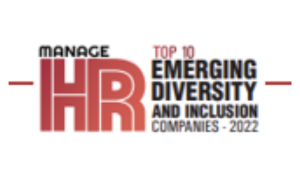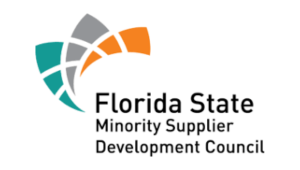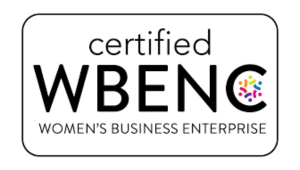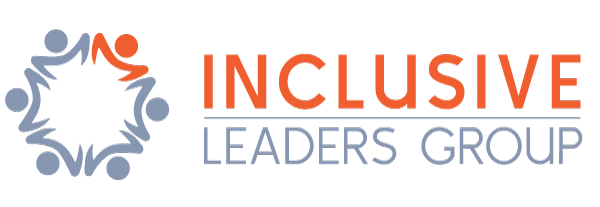- More than two years after the killing of George Floyd, many companies are still struggling with a “racial reckoning”.
- Racial inequity in the workplace is an ongoing challenge for employers – especially when it comes to retention.
- Leaders can start by looking at their own company through the eyes of Black employees seeking the belonging, support, and trust that all employees need.
The post- George Floyd racial reckoning in 2020 caused many companies to acknowledge that existing corporate efforts simply have not done enough to address racial inequity in the workplace or the vast wealth gap between white and Black Americans that reflects and helps reinforce this inequity.
As employers, companies have historically focused their efforts on hiring and job creation. Increasing the number of Black employees clearly matters a great deal. But CEOs consistently cite retention—that is, making sure Black employees stay and thrive—as the biggest hurdle to their diversity, equity, and inclusion goals.
Employee Turnover Due to Race Issues Costs Businesses Billions
Employee turnover due to racial inequity in the workplace has cost U.S. organizations up to $172 billion over the past five years, according to new research by the Society for Human Resource Management (SHRM).
SHRM’s The Cost of Racial Injustice Report, found one-third of Black employees faced unfair treatment at work based on race and ethnicity in the past year, and over two in five Black workers say they have experienced this in the past five years.
“SHRM has consistently challenged leaders in the workplace to have open and honest conversations with their peers and teams about bias, discrimination and racial inequity, and then turn those conversations into concrete action,” said SHRM President and CEO Johnny C. Taylor, Jr., SHRM-SCP, in a press release. “The path to equity is shared, and it will take the collective efforts of HR professionals, C-suite executives, people managers, and employees to create workplaces where inclusivity, empathy, and respect are the cornerstone of culture.”
Key findings from the new SHRM research include:
– Over the past five years, 26 percent of Asians, and 21 percent of Hispanics or Latinos, have experienced unfair treatment in the workplace due to their race or ethnicity.
– Absenteeism due to anxiety, worry, stress, or frustration stemming from experiencing or witnessing unfair treatment based on race or ethnicity in the workplace may have cost U.S. businesses up to $54 billion in the past year.
– Lost productivity was even more costly, carrying a $59 billion price tag in the last year.
Promoting diversity, equity and inclusion in the workplace is impossible without a strong focus on empathy. Of workers who expressed an opinion, 92 percent said if they were seeking a job, they would specifically look for a company that demonstrates empathy.
Most American workers prefer remote and hybrid work environments in 2022, as they allow for more flexibility and freedom. However, for Black employees that preference may be less focused on the benefits of being able to work from home. According to a recent report from Bain, a global management consulting firm, less than 25% of Black employees feel included at the office.
Although companies have ramped up diversity, equity, and inclusion efforts for their employees, according to Bain’s “Inclusion Helps Your Company’s Black Employees Move Up, Not Out” article, Black workers are disproportionately confined to lower positions at their organizations.
Black workers make up 36% of front-line workers, the highest percentage of any racial group and significantly higher than white workers (21%). Furthermore, 21% of Black workers hold lower-wage front-line jobs that pay less than $30,000. Black people also are much less likely to hold mid-level and executive positions at their companies.
Inclusive Leaders Group: Building a Racial Equity Culture
Inclusive Leaders Group CEO and Principal Consultant Charlotte F. Hughes and Inclusive Leaders Group Senior Consultant, Dr. Courtney L. McCluney discuss the ways leaders and organizations can effectively create a racial equity culture on a recent episode of The Inclusive Enterprise Podcast.
Inclusive Leaders Group recommends three action steps employers can take to boost racial equity informed by: McKinsey & Company’s 2021 Race in the workplace The Black experience in the US private sector report.
- First, companies need to look beyond simply hiring Black workers. While companies are hiring Black workers into entry-level jobs, a large portion of workers leave before they are promoted. Incentivizing additional support from managers to help integrate and support Black employees after they are hired could help ensure that newly hired Black workers have the tools, development opportunities, and direction to excel.
- Second, focus on reestablishing trust. Valid and reliable research shows that Black employees do not feel that their company values and embraces diversity, that the system for evaluation and promotion is fair, or that they can bring their full selves to the workplace. To help restore trust, companies must provide more transparency into their evaluation and promotion processes and work to eliminate bias.
- Third, companies can build systems to create opportunities for Black workers. According to our research, only 23% of Black employees believe they get “a lot” or “quite a bit” of support to advance. Sponsorship from leaders opens opportunities for workers at every stage of the career journey, helping workers gain visible jobs, projects, and promotions.
If your company or organization is ready to take strategic and sustainable action to become a more inclusive workplace for Black employees talk to us about our Build a Racial Equity Culture Virtual Workshop Building a Racial Equity Culture Introduction Workshop Overview_ILG_for your leaders and teams. If you have not addressed Race and Anti-racism yet with employees since the racial reckoning of 2020, and you are unsure about making the commitment to an educational workshop, a BRAVE Workplace Conversation about Race is the place to start.
 As CEO and Principal Consultant of Inclusive Leaders Group, LLC, Charlotte Hughes MS, CDP, SHRBP, CPLP brings a diverse background as an accomplished Workforce and Organizational Development and Diversity & Inclusion global thought leader and practitioner for several major Fortune 100 companies and one of the largest health systems in the U.S. Charlotte helps organizations develop their DEI strategy and provides DEI education for talent and organizational development.
As CEO and Principal Consultant of Inclusive Leaders Group, LLC, Charlotte Hughes MS, CDP, SHRBP, CPLP brings a diverse background as an accomplished Workforce and Organizational Development and Diversity & Inclusion global thought leader and practitioner for several major Fortune 100 companies and one of the largest health systems in the U.S. Charlotte helps organizations develop their DEI strategy and provides DEI education for talent and organizational development.Schedule a discovery discussion with Charlotte about building a racial equity business strategy and culture. Contact her on Calendly or this Contact Form.








